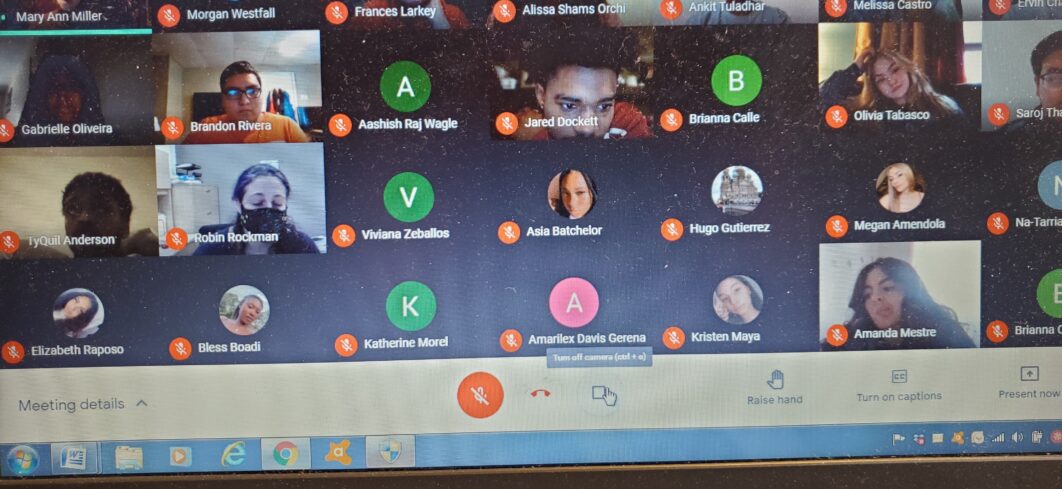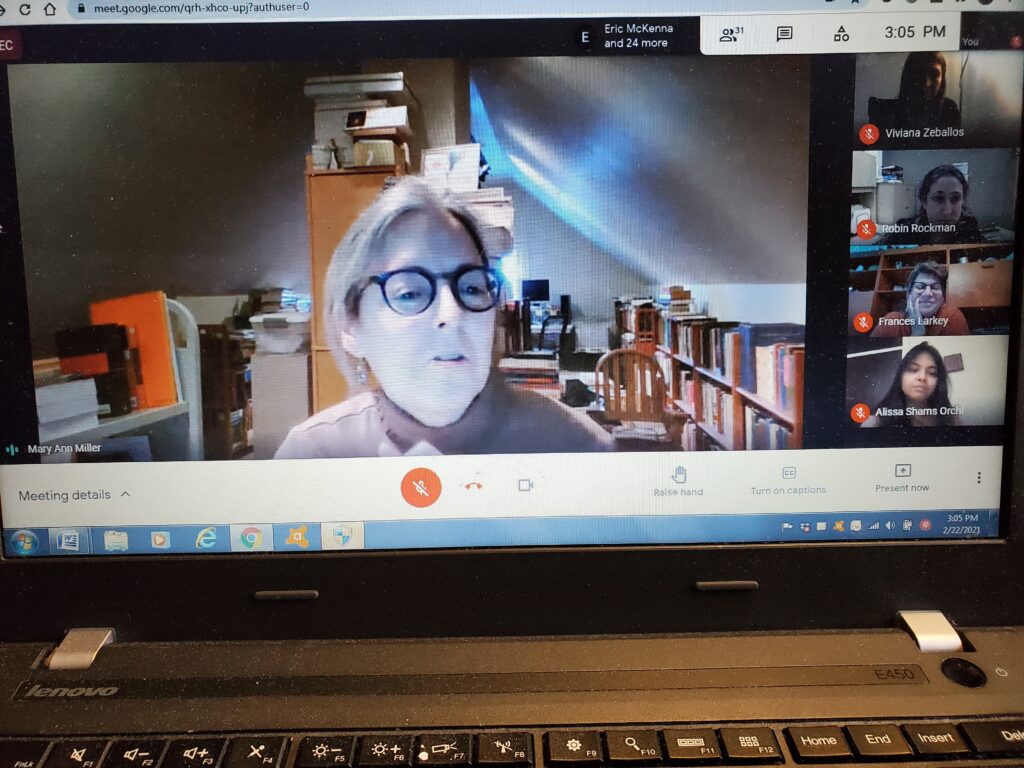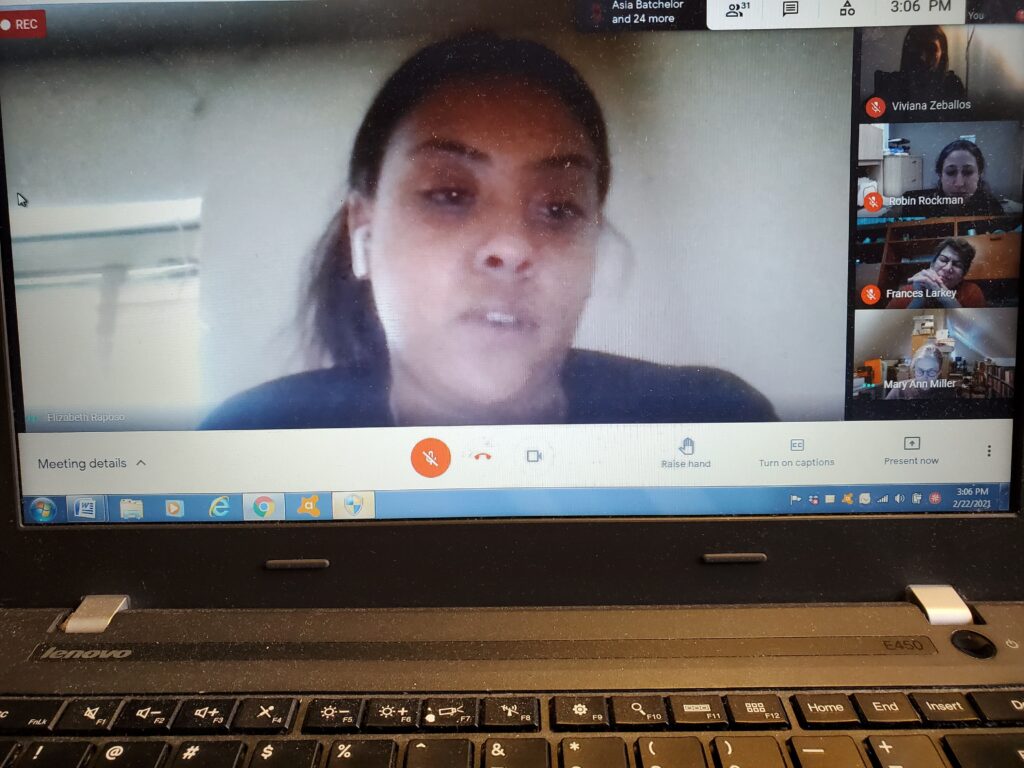Caldwell University
February 26, 2021
Poetry Readings with Caldwell Public Library Highlight “African American Poetry: 250 Years of Struggle and Song”

Caldwell, N.J. Feb. 26, 2021 – Students in Dr. Mary Ann B. Miller’s Introduction to Poetry classes teamed up with the Caldwell Public Library to celebrate Black History Month Feb. 22 by hosting two virtual poetry readings in which they read from the new Library of America anthology, “African American Poetry: 250 Years of Struggle and Song”, edited by Kevin Young.
Miller said the poems written by Black poets help us see that “White Americans can err in two ways — either as painting Black lives as better than they really are or even painting them as worse than they really are.”
Two separate readings were held where students read poems by greats such as Langston Hughes, Maya Angelou, Gwendolyn Brooks, Yusef Komunyakaa, Dudley Randall and Rita Dove.

The pervading theme was Black history in America, including slavery, persecution in civil rights, police brutality and Black service in the Vietnam War, as well as the importance of preserving personal histories and the dignity of Black women.
The final poem focused on conveying the universality of human experience. Student Amarilex Davis-Gerena read Dudley Randall’s “A Poet Is Not a Jukebox.” Randall, said Davis-Gerena, is saying, “I have my own voice, so please don’t tell me then how to use it or what to do…I have much to say and even if you might not like it or agree with it, I’m still going to say it.” She said he is giving a voice to the Black community, and that even if something is gruesome, sometimes the listener has to deal with it and listen to it. “Imagine if I have to live with it, you’re going to have to listen to it; that is the least you can do.” Davis-Gerena said Randall expresses how even though he is Black not every story has to be negative, and in this particular poem he talks about Black love as a more universal topic for poetry than current events, which are not as timeless: “What’s wrong with love, beauty, joy, or peace? . . . don’t tell me it’s trivial . . . .” The poem communicates the message of using one’s voice, whether in a good or bad situation, in the way he or she wants to “especially if I have been given the ability to do so… now more than ever,” said Davis-Gerena.

Miller said that in her discussions with students this past month they talked about the reason people read poetry, and they came to the conclusion that it is to try to understand the lives of other people. Miller added to that saying, “Even if the poets were here to read their poems, we would be hearing their interpretation of their work, but they want us to read them too and have ours too and enter into the poem.”
Frances Larkey, head of adult programming at the Caldwell Public Library, said she attended both sessions and enjoyed hearing students share their own interpretations “from their own hearts.” And she added that she can’t wait until post-Covid when Miller can host upcoming readings with students at the library again.
Mary Ladany, of the Academic Success Center, told the students she found it is interesting how “the choices that all of you made, somehow reflect who you are and what you are trying to do in your own life and in your work.”





